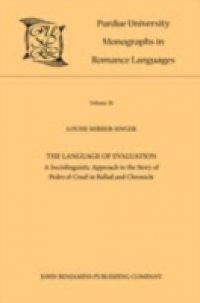The first comprehensive account of the Appraisal Framework, a newly developed approach to analysing the language of evaluation and stance. The authors offer new insights into the nature of evaluative language and into its social and rhetorical functionality. They explore the role evaluative meanings play in the dissemination of ideology, in the construction of textual styles and authorial identities, and in the negotiation of speaker/listener, writer/reader relationships. Under the influence of Bakhtin's notion that all language is in some way dialogic, the authors also offer a re-interpretation of the semantics of modality, evidentiality, attribution, concession and negation. This re-interpretation provides a new understanding of how written texts project onto their reader's particular beliefs and values, and how they negotiate relationships of rapport between writer and reader. The book offers guidance in how the Framework can be applied in textual analyses and includes detailed analyses of texts drawn from the media, politics, academia, and fiction.

